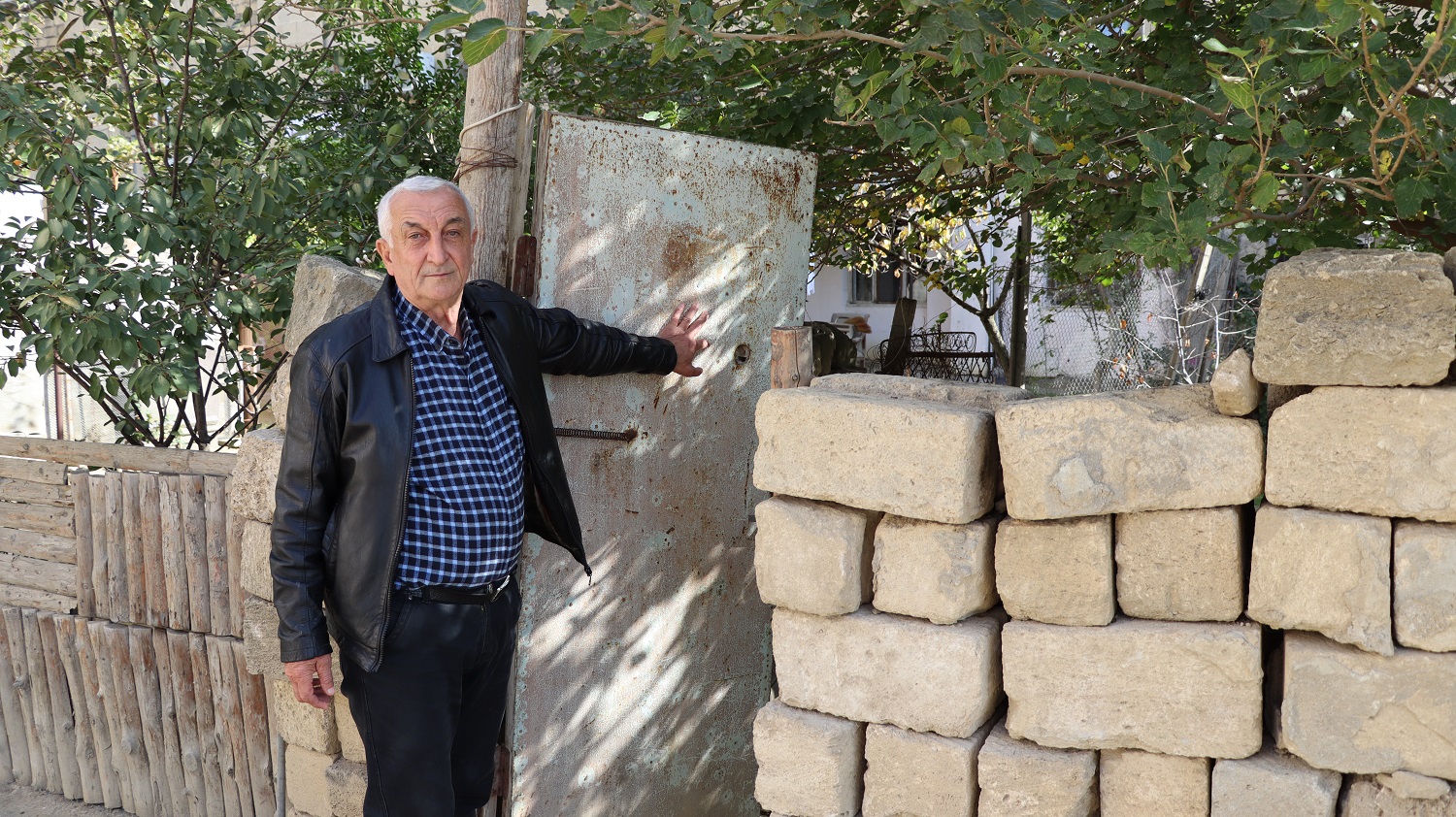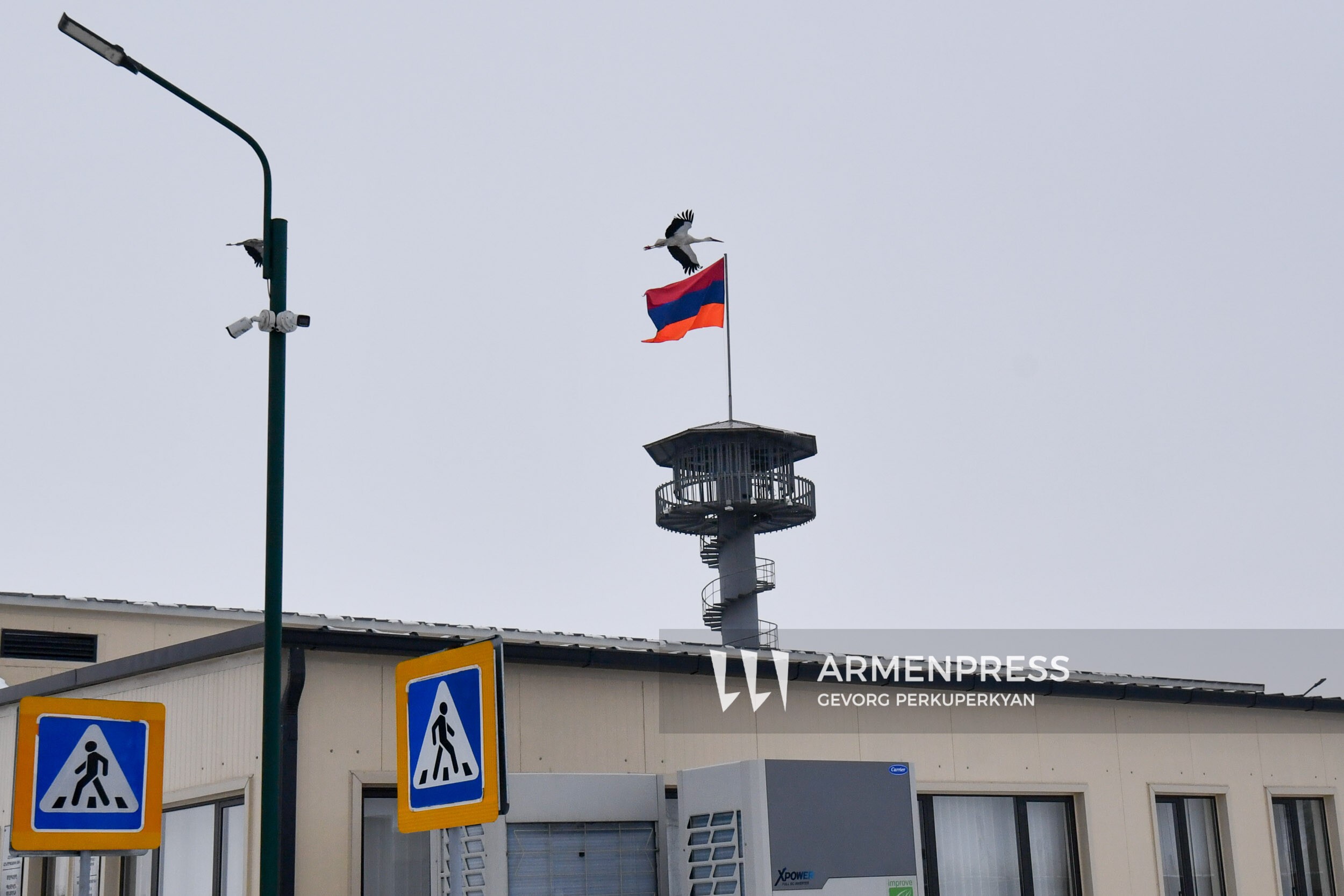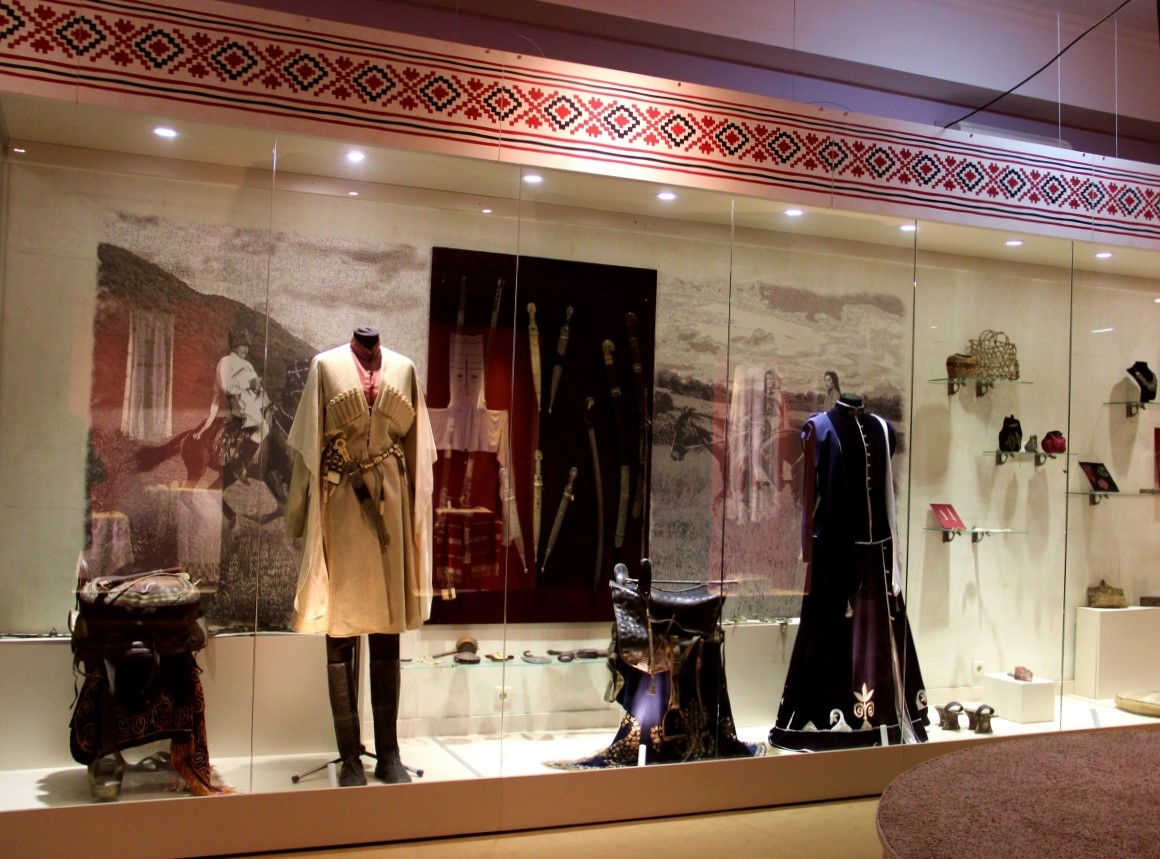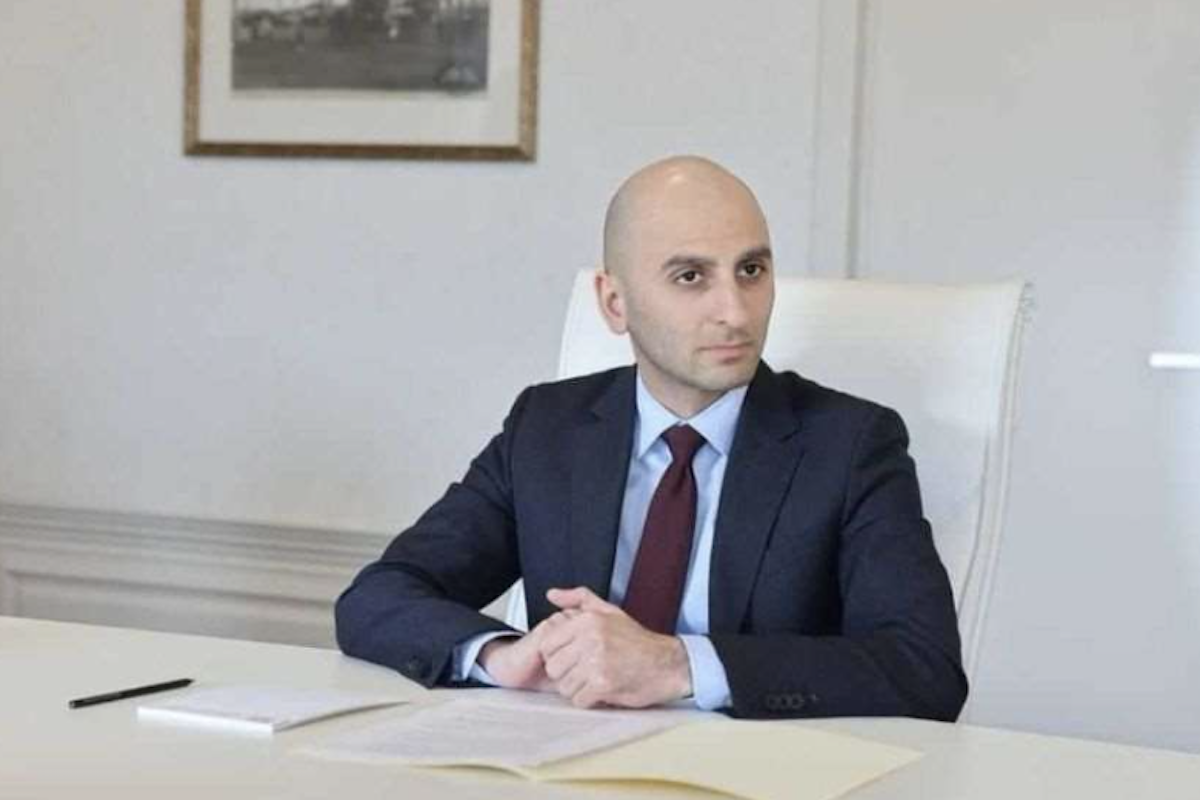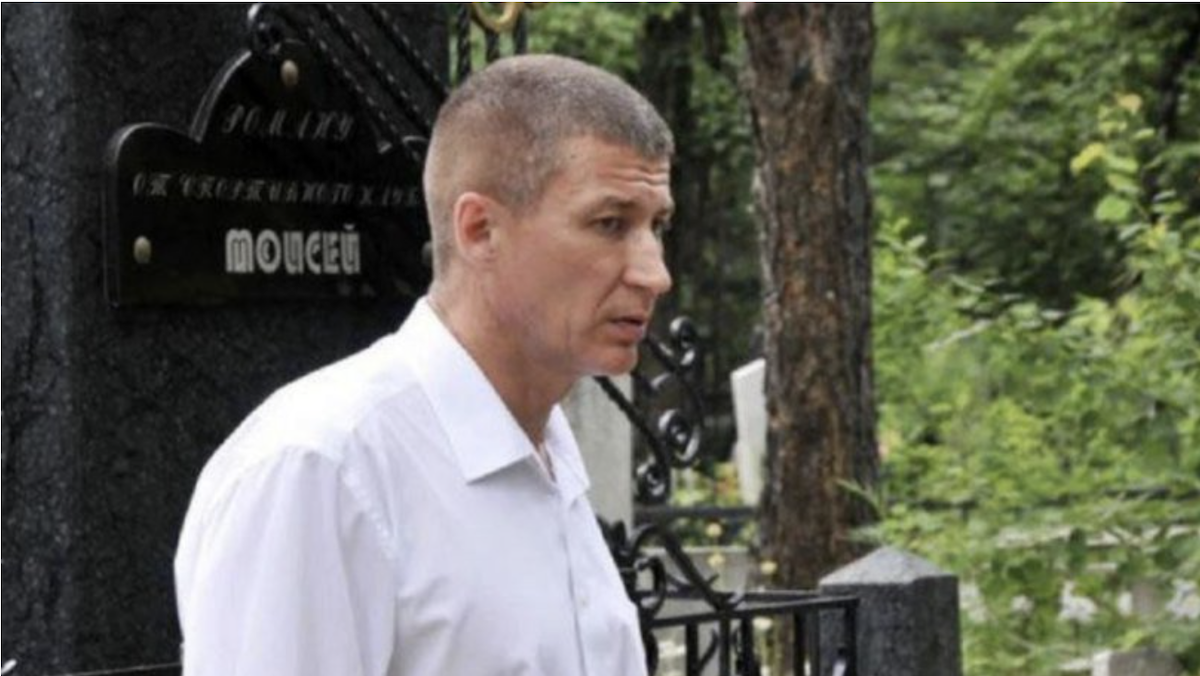Destroyed graves, demolished houses - in Garadaghli village after 32 years
Return of Azerbaijanis to Karabakh
As a result of the second Karabakh war between Azerbaijan and Armenia in 2020, and an “anti-terrorist operation” by the Azerbaijani army in 2023, territories that had been under the control of the Armenian army for more than 30 years returned to Azerbaijan.
After that, Azerbaijanis from the former Nagorno-Karabakh Autonomous Region and seven adjacent districts were able to revisit their villages and homes along the routes established by the Azerbaijani government.
What did they encounter when they visited these places? Did they find their homes in the places where they left them?
One of the families that found answers to these questions is the Shirinov family.
The family of five children (three sisters, two brothers) comes from the village of Garadaghli in the Fuzuli district. The inhabitants of this village were forced to leave in 1991, when the Karabakh conflict escalated.
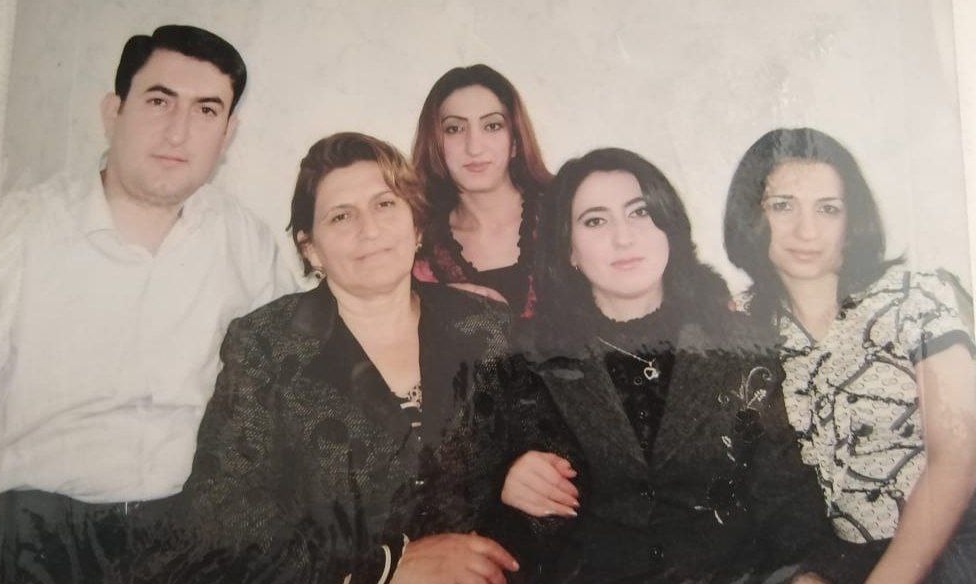
The Shirinovs’ house was located on the edge of the village road. The house with its large balcony and yard always had guests. The samovar always stood hot in the middle of the courtyard, fresh bread from the tandoor was placed on the table for treating neighbors.
“There would be no guests in the morning. My grandmother would start complaining, ‘Look how long it’s been, not a single soul has come in for tea,'” Sulhiyya Shirinova, the eldest daughter of the family, says.
Because she is older than her siblings, her memories of the village are more vivid. She remembers going with her peers to Jafar Rock on the outskirts of the village. They climbed to the very top of the steep cliff, and then out of breath, ran down the straight slope to the bottom.
But for them, the carelessness of childhood was short-lived.
The year 1991 was like a nightmare for the village of Garadaghli. The war was already approaching their homes.
The Shirinov family was ready to move out of the village at any moment. One day there was shooting in the village. Tiflis Shirinov, the father of the family, took his family members by car to a neighboring village and waited for the situation to calm down before bringing them back home.
First loss in the family
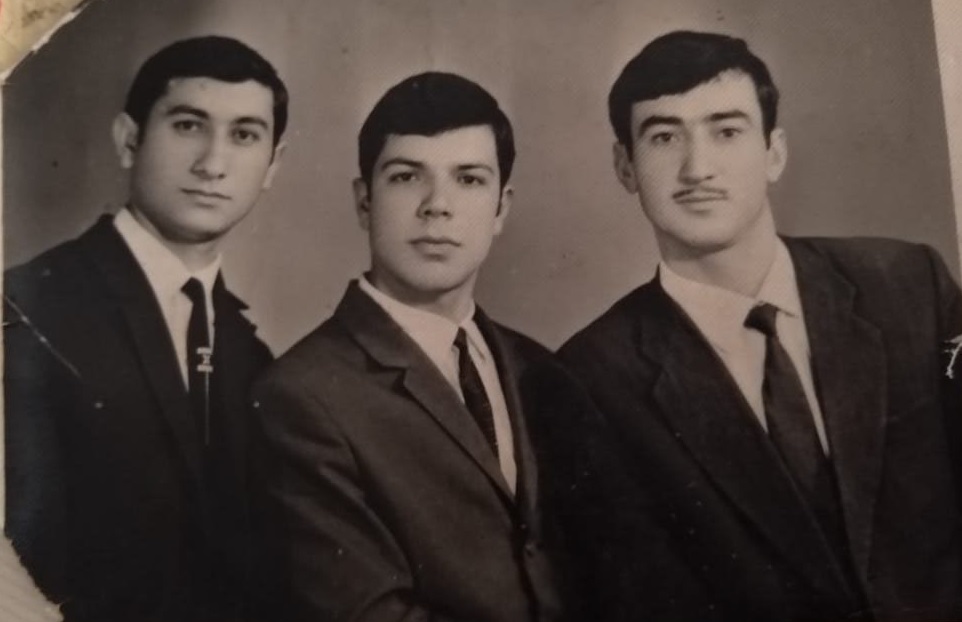
In April of the same year, the sound of gunshots was again heard near the village. Sulhiyya’s mother, Rahila Iskandarova, was undergoing treatment in the hospital. So the grandparents dressed the children and waited for their son Tiflis to come and take them to a safe place.
But Tiflis did not come.
“The last time we heard two shots. They said the Armenians were coming. My grandmother was angry, where was my father? What would we do if they suddenly attacked the village?
A few hours later came the news of my father’s death,” Sulhiyya says.
Tiflis Shirinov, a math and military training teacher at the village school, was shot by armed Armenians at the entrance to the village, at the foot of the village cemetery. After everything subsided and the shooting ended, he was buried in the same cemetery.
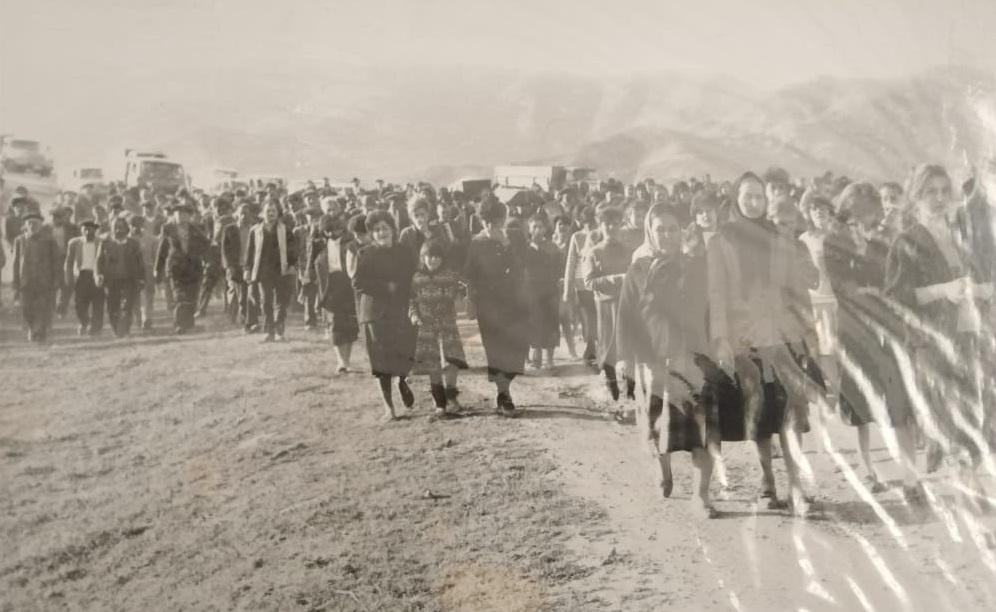
“We left the village before the occupation.”
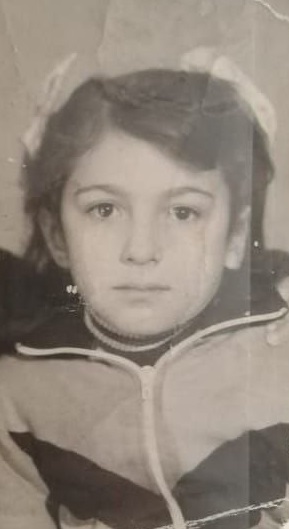
The Shirinov family left the village soon after this loss. Sulhiyya went to Baku to study and lived in the dormitory of the schooo where she was studying. Later, her mother and the rest of the children – Ruhiyya, Lamiya, Ugur and Adil – moved to a small one-room apartment in one of the houses located in the 3rd microdistrict of Baku. Sulhiyya’s paternal grandparents settled in Sabirabad district. Other close relatives were scattered all over the country.
Because the head of the family was no longer with them, the entire burden fell on the mother’s shoulders.
The apartment they lived in was like a basement. The bathroom in the house was dilapidated and full of snails. The children fought the snails every morning by sprinkling salt on them.
“I lived in the dormitory until I graduated from high school, visiting my family only on weekends. My mother was a very proud woman. One day there was no money for the return trip for me to go back to the school. My mother went to a neighbor and said that we only had a 100 manat bill and there was nowhere to change it in the morning. If you have it, give me 20 kopecks for my child to go to school, and I will change a hundred and return it,” Sulhiyya says.
When the Shirinov family left Garadaghli, they did not take many things with them. They brought with them mostly family photos, most of which had deteriorated.
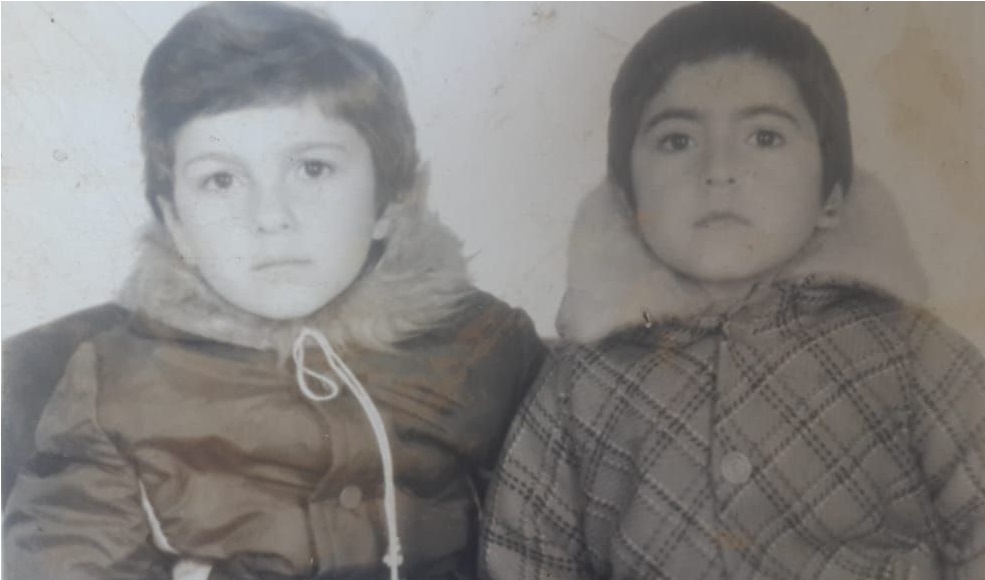
After more than 30 years of being displaced, the family’s main desire was to return to their native village and visit their father’s grave.
“Maybe mom died early because of the hardship.”
During the fighting in the second Karabakh war, the Shirinovs waited for the name of Garadaghli village to be mentioned among the territories that passed under Azerbaijani control. When this news reached them, the brothers and sisters excitedly called and congratulated each other. Their joy was also due to the hope of visiting their father’s grave.
Sulhiyya recalls the moment she heard the news:
“I came out of the subway. Suddenly I saw on my phone that someone had shared the President’s tweet that the village of Garadaghli in Fuzuli district had been liberated from occupation. I started crying. The first person who caught my eye was a police officer working in the subway. Crying, I told him that our village had been liberated. He said, why are you crying, you should be happy.”
But not all family members were able to see the day. After his father’s parents lived in Sabirabad for a long time, they moved to Baku to their grandchildren and soon passed away. Sulhiyya’s mother Rahila died in 2018 after a long illness. The woman’s will to her children was to bury her next to her husband someday.
Sulhiyya says that probably her mother died so early because of poor living conditions. Had they had a normal home and less worries, she might have lived long enough to see Garadaghli again.
Home after 32 years
The sisters were able to visit their native village after 32 years. On a cold November day in 2023, the road took them not only from Baku to Fuzuli, but also to the past days, the places where their memories remained unfinished.
Along the way, the girls excitedly talked to each other, happy to finally be able to visit their father’s grave. At the same time, they prepared themselves for the fact that they might encounter ruined graves and demolished houses.
They entered Garadaghli accompanied by police officers and ANAMA (the state demining agency).
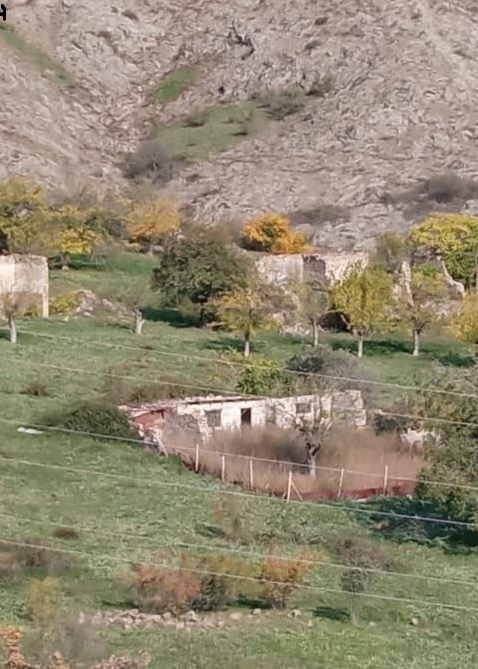
The village was not at all like the place they had left 32 years before – it was a desolate plain surrounded by ruined houses, immersed in a deep silence, which made them deeply sad. None of these dilapidated houses was familiar to them. They could not recognize in them the neighboring houses they had visited many times. After this scene, it was hard for them to imagine how they would find their father’s grave.
They could only recognize the village school they had attended. Apparently, the school had been used as a mill since then, and the pair of chenar trees next to it remained untouched.
The village cemetery was lost among the thorn bushes. The girls separated and began to wander among the graves, trying to find their father’s grave.
Suddenly the voice of one of them rang out almost throughout the village.
“Father’s grave! One hundred percent it’s his grave! Look, the blue coffin is visible and his gold tooth has been pulled.”
As they approached the grave, they saw that it was destroyed, the boards from the coffin headboard had been removed, and their father’s gold tooth had been stolen. One of the girls touched her father’s skull and began to weep. Sulhiyya called her aunt and told her what she had seen.
After 32 years, they returned to their native village and were happy to find their father’s grave, albeit in a ruined state.
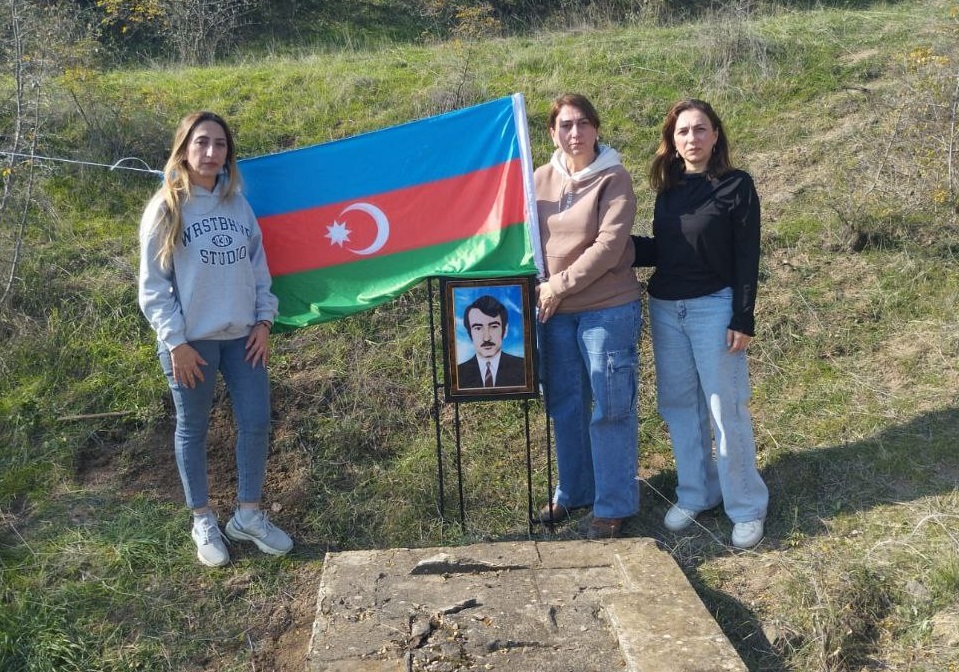
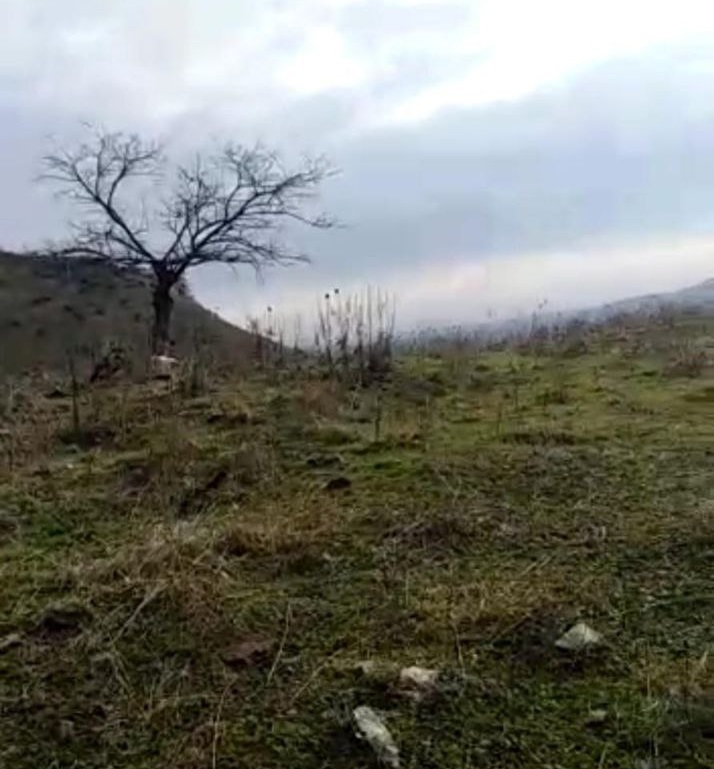
After leaving the cemetery, they were completely exhausted and could not return to the village to find their home. But later, on the photos and videos taken by those who went to the village after them, they saw that their house was completely destroyed. And they could determine the approximate location of the house only by the pear tree in the yard, which was no longer there.
Sulhiyya says it takes time to accept the idea of living in her native village with Armenians again, as before:
“With time, we, as two states, have to live in peaceful conditions, as neighbors. I don’t know if the neighborly relations will be the same as in the times of our fathers and grandfathers. I do not know if I will ever forget the murder of my father, the demolition of my house, the destruction of my father’s grave, the life of a refugee, the lost years of my childhood and youth, and the pain caused by the conflict. But for peace and development in the region, normalization of relations is important and necessary so that both peoples live in peaceful and good neighborly conditions.”











